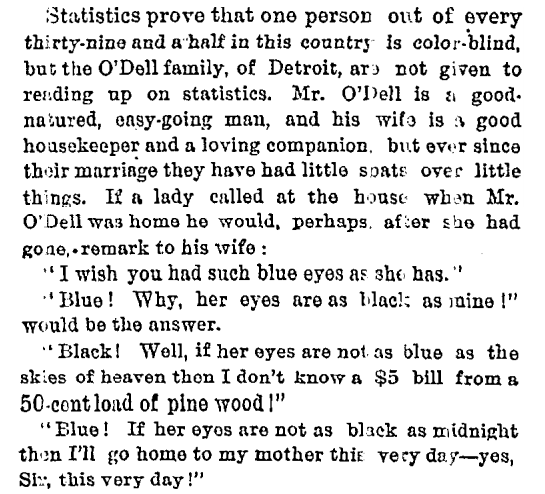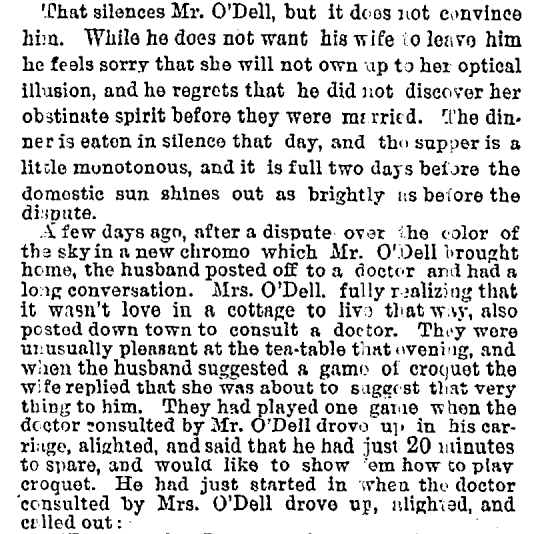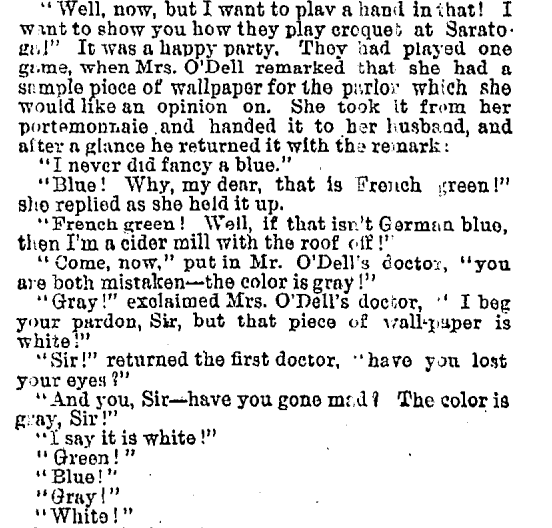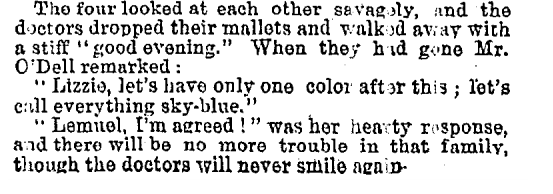The Time I Vommed on Jessica Lange
by Matthew J.X. Malady
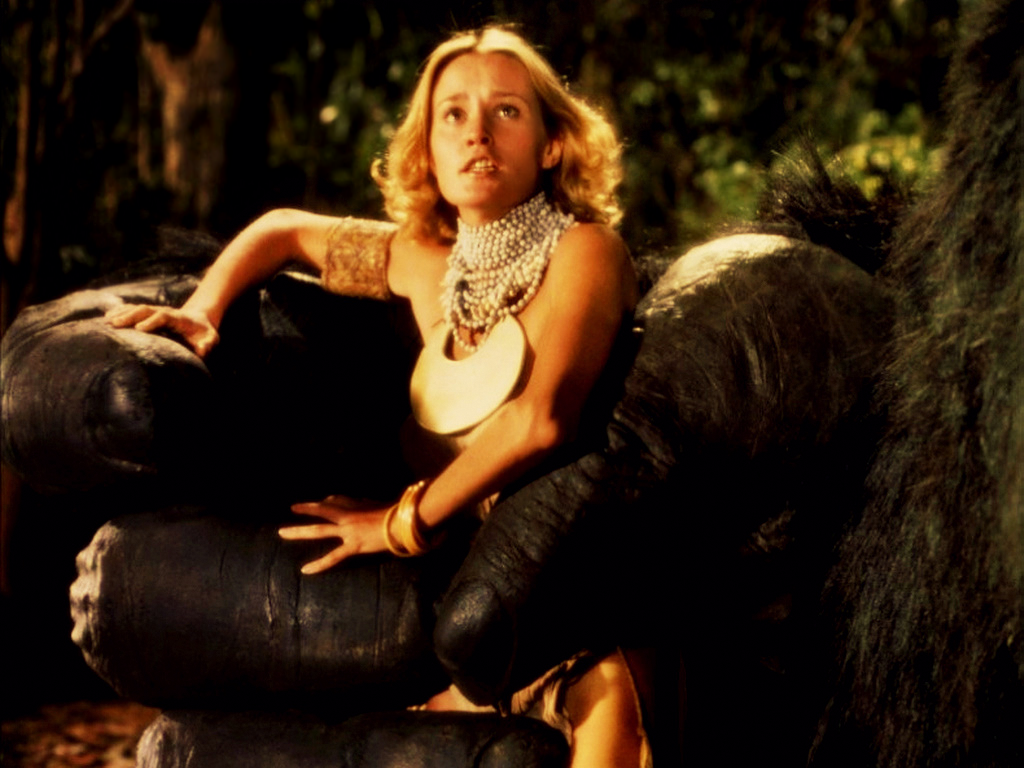
People drop things on the Internet and run all the time. So we have to ask. In this edition, Marketplace Weekend host Lizzie O’Leary tells us more about what it’s like to vomit on a movie star.
@biocuriosity hi I threw up on Jessica Lange.
— Lizzie O’Leary (@lizzieohreally) February 18, 2015
Lizzie! So what happened here?
It was my senior year of college (1998), and I was on vacation in Akumal, Mexico, about an hour south of Cancun. For the first week, I was with my family, who had rented a condo there. Then my college roommates came down, and I spent about four more days with them. This is a long way of saying I was traveling alone back home. I speak no Spanish, though wasn’t feeling so hot, so was practicing “I am sick” and “please pull over.” By the time I got to the airport, I was a full-blown disaster. I remember checking my bags and noticing a really good-looking middle-aged couple with their kids as we all went through security. But in that way that you can’t place celebrities, I thought maybe they were friends of my mother’s or something.
By this point, I was bolting for the bathroom or trashcan every ten minutes to barf. It was very clear to me that whatever I had, it was nasty. I tend to get sick when I travel, but I was really, really far gone. Since this was Cancun in college, I would also like to note that I was a hundred percent sober.
At some point, I decided to call my parents (collect, of course). My Dad was in a meeting, and I couldn’t reach him. My mom was at opening day for the Orioles. I don’t think anyone had cell phones. I remember turning, sweaty and crying, back toward the international passenger waiting area. There were maybe twenty-five feet to the trashcan. I knew I wouldn’t make it. And I heaved and puked all over myself and the floor, in full view of about two hundred people.
Suddenly I felt a tap on the shoulder, and this very handsome man was wiping the vomit from my face, and offering me a Cipro. “Are you okay?” he asked. I managed a sort of weepy, strangled, “No,” and he took my hand and led me over to his family. At some point my undergrad drama brain realized who he was and squeaked out “You’re a really great playwright.” He looked appalled, but thanked me and continued being nice.
He led me to Jessica Lange and their two utterly disgusted kids. They were headed to Minnesota and sat with me for about forty-five minutes giving me sips of water and coke, and alternating Cipro and Imodium. And then, of course, I couldn’t help myself, and though I tried to hold it down, I heaved forward and wretched all over the floor and her ankles (I’m pretty sure she was wearing sandals).
How did she react? What did you say? And what was the remainder of the trip like following this incident?
She could not have been lovelier. I remember saying, “I’m so sorry!” and trying to play it off. I was also definitely way too old to be acting like such a baby. She told me not to worry, that she was a mother, and she just wanted to make sure that someone took care of me. I was twenty-one at the time, but emotionally, I was reduced to about age seven.
They sat with me until their plane boarded. Except for the playwright comment, I don’t think I ever acknowledged that I knew who they were. But they were truly fabulous people. If this had happened today, not in the nineties, I would have figured out how to get in touch with them to thank them. Back then, I was a moronic college kid and had no idea.
After they left me, I eventually boarded my flight to D.C. via Charlotte. Turns out that I passed out somewhere on the way and was hospitalized with E. coli poisoning in Charlotte for a couple days. But, you know, I was a vain college kid, and I lost some weight, which was pretty much what mattered to me then. Plus, good story?
Lesson learned (if any)?
Oscar winners…they’re just like us? No. I suppose it’s that people are truly lovely when you are alone and covered in your own puke. Also try not to get E. coli poisoning. It’s not great. But I do wish I had written them a thank you letter. I probably would not have made it home in one piece without them.
Just one more thing.
I can’t watch anything with either of them in it without cringing. And I wonder what their kids must have thought of that experience (one was a teenager, the other was maybe eleven or twelve). If my parents took care of some random girl in an airport, I would have been deeply skeptical.
Join the Tell Us More Street Team today! Have you spotted a tweet or some other web thing that you think would make for a perfect Tell Us More column? Get in touch through the Tell Us More tip line.
I Am the Foul Byproduct of the Mating of a Professor and a Student
by A “Student” of Love
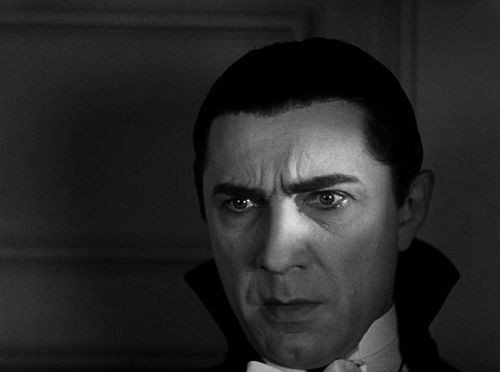
From time to time, The Awl offers its space to everyday citizens with something to say.
In a Chronicle of Higher Education cover story by Laura Kipnis that is just now leaking its way from the academic Internet towards the general interest Internet, the Northwestern film professor savages the growing vogue for victimhood among today’s young people. She writes:
But what do we expect will become of students, successfully cocooned from uncomfortable feelings, once they leave the sanctuary of academe for the boorish badlands of real life? What becomes of students so committed to their own vulnerability, conditioned to imagine they have no agency, and protected from unequal power arrangements in romantic life? I can’t help asking, because there’s a distressing little fact about the discomfort of vulnerability, which is that it’s pretty much a daily experience in the world, and every sentient being has to learn how to somehow negotiate the consequences and fallout, or go through life flummoxed at every turn.
A completely unassailable and terribly accurate statement. It’s all bad news for today’s students. If you’ve ever been harassed on campus and found it terrible, just you wait until you get harassed in the workplace! It’s a real treat! The best part is getting up and going to work every day.
And while universities are currently stuck in a senseless loop of idiotic sexual assault investigation processes, creating tribunals that literally make no sense, well… wait till you meet the NYPD. Enough said.
But harrowingly, Kipnis begins her argument with this:
You have to feel a little sorry these days for professors married to their former students. They used to be respectable citizens — leaders in their fields, department chairs, maybe even a dean or two — and now they’re abusers of power avant la lettre. I suspect you can barely throw a stone on most campuses around the country without hitting a few of these neo-miscreants. Who knows what coercions they deployed back in the day to corral those students into submission; at least that’s the fear evinced by today’s new campus dating policies. And think how their kids must feel! A friend of mine is the offspring of such a coupling — does she look at her father a little differently now, I wonder.
I am one of those children who now lives in the darkness.
When people ask me what my parents do, I string together some lies. I tell them: “My father is a professor and… my mother was never a student!”
Yes, using only the power of his mind and of his completed doctoral thesis, he commanded her, Dracula-style, into some filthy teacher’s room. There was nothing she could do but marry him and then, for nine-ish months of torment, she carried me, their unholy intra-departmental fruit.
He didn’t even have the mercy to hunt outside his discipline.
They stayed married until one day she fainted on the quad and was carried off to safety by a group of wily librarians.
I will carry this shame with me forever. A dalliance of a teacher and a student, who had no hope of consent — as unequal as a human and a feline! What hope is there for me?
Some day I will join with others similarly situated and we will found a colony of our own and, most likely, engage in neuterings and spayings. Until then I must let my grotesque existence be the reminder for all students to avoid the gazes and alcoholic offerings of their professors — no matter that professor’s gender, specialty or tenure status. Trust no instructor. Be hot for no teacher.
A “Student” of Love is a lonely RA on an all-gender dorm floor near you.
Orrin Keepnews, 1923-2015
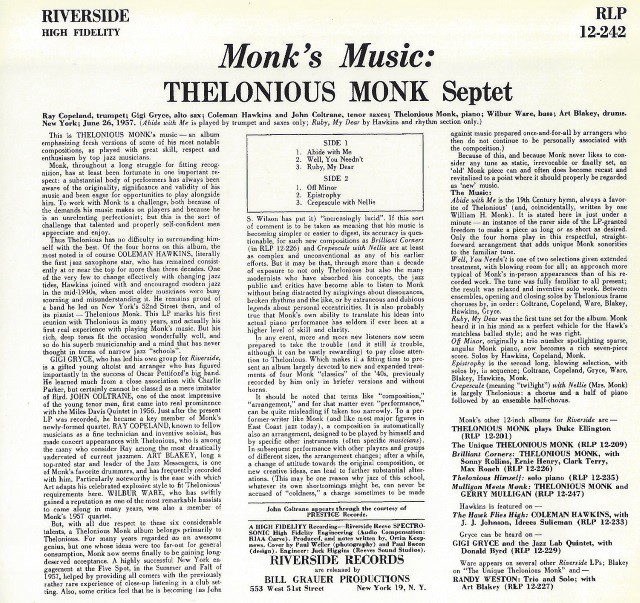
“Orrin Keepnews, who as a record company executive and producer helped create some of the most celebrated recordings in jazz over a half-century, died on Sunday at his home in El Cerrito, Calif. He was 91.”
— Legend.
Carly Rae Jepsen, "I Really Like You"
According to the seasonal patterns of the broken prediction market known colloquially as the “music industry,” now is the time to make bets on summer songs. The odds are never good, not even for proven quantities, but the potential payoff is huge. It is worth it, in other words, to be so rude as to release an aggressively sunny song at the exact moment the American (Canadian?) public reaches its collective emotional trough. It is far too early for this song to have its maximum effect or to be heard remotely as intended; we will hear it again in a few months, with the sound of the straining AC in the background, and it may make more sense. Or maybe we’ll never hear it again! Either way, now is not the time. Our edgy delirium is, as always, on clearest display in the YouTube comments:



Yes, mash those buttons and fill those word holes, internet. Just a few more weeks. Just a few more weeks.
In Praise of Getting Back Together with the Dude Who Dumped You
by The Concessionist
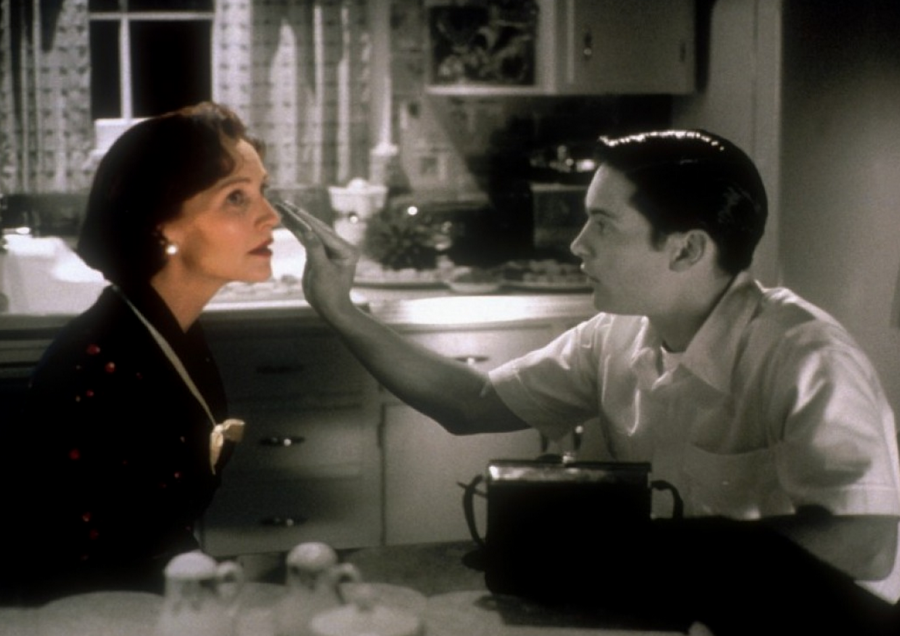
The Concessionist gives advice each weekend about the sordid choices of real life. Trouble? Write today.
Dear Concessionist,
I have boy troubles.
Wait! Don’t hang up! Or do whatever email hanging up is! I’ll be briefish.
After years of chill, contented aloneness, I met the most hilarious, most brilliant, most exhilarating person ever to be really good at sex. Affectionate and kind and well-liked. Talented to the point of being a little famous in his field. He said he was deliriously happy and I was too — until he left me for someone else.
The problem is, it’s been about a year and, as Sinead had it, nothing compares. I have friends and hobbies and go out, but mostly I’ve just missed him. Everything else has felt like “Pleasantville” before Joan Allen masturbates. A week or so ago he emailed basically everything you’d want to hear after a year of pining: he misses me, he’s sorry, he fucked up, the girl who came after me is no me, et cetera.
While my head says that seeing him again is a terrible idea (as do all of my friends and my parents and my boss and probably the crazy old man who rides my bus, if he had all the information and was consulted). But my heart says… I think I may love him? What if he’s truly the most spectacular person I will ever meet and may be okay with infidelity if it’s part of that? Isn’t this why people still stay with kooky painters or charismatic politicians or Warren Beatty? Why does everybody else seem so boring? Should I find a trustworthy patent attorney I will eventually learn to love for his steadfastness? Help me, I’m dumb.
Love,
Girl Johnny Drama.
Dear Girl,
Why — and how — do we give advice? Two things.
Most often, we give advice to help others avoid pain. We think pain is the worst. Without really thinking of it, we assess a situation and then, like robots, spit out “This is the pain-free way.”
Pain-free advice overlaps with what most of us should actually do a big chunk of the time! Don’t stab yourself with that jerk; come clean and free yourself of torment; stand up for yourself and feel proud; ask for what you want.
There’s a subset of advice which is “Walk through pain for something better” also. That’s like: quit smoking, go to rehab, get divorced, get a really gnarly piercing.
But also, we all know as advice-givers that we will be forced to live with the outcome of our counsel. So also there are times when I do not want to hear about someone’s complicated situation for the next six months! And so I will be like “here is the most straightforward or less harrowing way.”
And so with both those guides operating, most people will be like HONEY NO STAY AWAY RUN RUN RUN.
And that advice may not be wrong? It’s not necessarily a good thing when you’re like “the world seems grey without him.” That means he burns a little too bright, you know?
But.
Here’s the weird email I sent you in response to your letter.
If you were my friend and we were having drinks
I’d be like
Girl don’t do this
YOU KNOW not to do this
except then
on like my third mocktail
I’d be like
FUCK IT DO IT WHO CARES WHY ARE YOU STILL HERE TALKING TO ME.
No person is perfect
and that goes double for men.
Huh, I email like a drunk Adrienne Rich when I get tired.
Yes, it’s entirely possible that you’re a deluded junkie for a crazy man. That you need to stuff your veins with a big pile of shiny-eyed narcissist monster. But so what if you are? And what if you aren’t?
So what’s the worst that can happen??? You end up in agony and a ton of therapy? BIG FUCKING DEAL. Getting hurt is fine. If we hated pain and loss so much, why do so many of us live with dogs and cats, knowing we’ll probably survive them? Are we supposed to live a life of safety and caution? Nope.
The worst outcome of this is you get dumped again basically. So what!
But promise me you’ll go in this time with some bravado. Like, you’ll come in hot. And say all the things. Like YOU FUCKED ME OVER FUCKNUTS. WHY WERE YOU A DICKSACK? Don’t let him not know about this stuff, at the very least.
The monogamy question here is interesting too. I mean you got LEFT. He did it the typical way — by cheating on you. People say they LOVE monogamy — yet not that many people seem to practice it? Like Christianity!
I have a shortcoming here which is that I think monogamy is silly and I don’t really care where people I love stick their parts. It’s SUPER if a couple loves being exclusive sexually and does that. It’s also HORRIFIC if they commit to monogamy and one of them cheats. Not all of us want to live inside that trap. I just can’t wrap my mind around the idea that people demonstrably want to have sex with lots of different people, so the most logical thing is to… make a promise not to indulge in this desire and to stuff it way down deep inside where it will fester into resentment, anger and sorrow??? Like, what? Why! It’s just a stupid religious and parentage-tracking idea that’s become a freaky cultural rule.
Anyway are you still reading this? NOPE you are probably in some gross sex position with him by now. Unlike your friends, who are girding themselves for six months of listening to you drone on about this, I salute you.
BETTER TO HAVE GOTTEN DONE RIGHT AND GOTTEN BRUTALLY DUMPED TWICE BECAUSE YOU WERE CRAZY AND WENT BACK FOR THE SECOND TIME AROUND THEN NEVER HAVING BEEN DONE RIGHT AT ALL.
I stand behind you. ALL WE HAVE TO FEAR IS PAIN AND SADNESS which are of course terrible but completely survivable.
Also you can love again after him anyway. Dating doesn’t really get good until you’re in your 40s it turns out! PS You’re not dumb. I heard you say that! KNOCK IT OFF.
Previously: • How to Make Your Girlfriend Like You (Again)
• How Do I Live Through Getting Screwed At Work?
• Help My Friend Is A Snob
• How To Share Feelings With Other Human Beings
The Concessionist is an adult human in New York City who is somewhat worn down and willing to make a good number of sacrifices for a peaceful life. Is it decision fatigue? Or just ennui? That’s probably a question for a psychiatrist. Anything else, ask me.
New York City, February 26, 2015

★★ A baby rode in a chest carrier while wearing a full-body electric-blue down suit, the sealed ends of its sleeves and legs dangling far beyond normal baby proportions. The 1 trains were stupidly spaced out, according to the signboard, but the prospect of walking to Columbus Circle in the generically wintry gray was unappealing in the same way as being stuck on a platform, only more intensely so. Only Down on Grand Street, the cloud-dimmed sun brightened and a few snowflakes began falling, in sparse and disorderly manner. Then the shadows and the snowflakes went away. The latter made a desultory but surprising return for a moment in the afternoon, just enough to give the children something to look out for on the way back from the preschool.
The Lager Beer Riot and the Birth of Law and Order
by Emmet Stackelberg
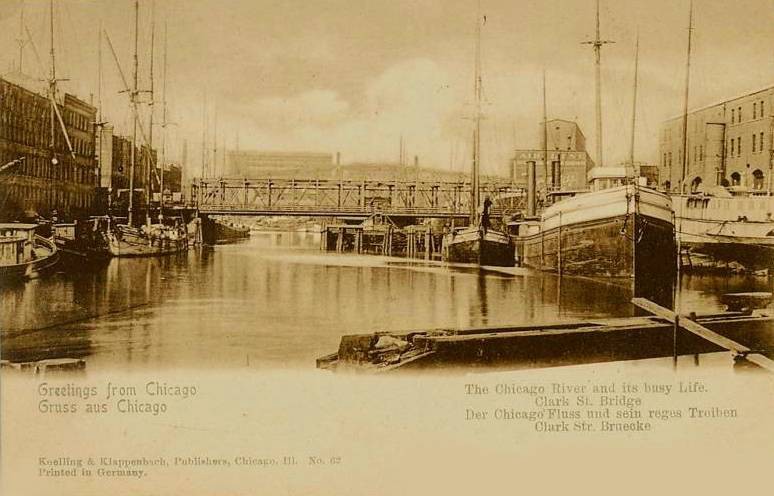
One Saturday in April of 1855, a large group of German immigrants assembled around the courthouse in downtown Chicago, hoping to attend a hearing at which nineteen saloonkeepers would stand before a judge for violating one of two new laws enacted by the new nativist mayor, Levi Boone, who had promised during his campaign to curb liquor consumption. One banned the sale of alcohol on Sunday, while the other mandated a three-hundred-dollar fee for a liquor license (up from fifty dollars in previous years). As constables tried to move the crowd out of the street, a tussle broke out. The Chicago Tribune fashioned the crowd as monsters. The street, it claimed, was “crowded with a multitude of the most desperate and savage characters in the city, ready for any blood, rapine or murder.” It’s true that the crowd was angry and agitated, but it was the show of force by a constable that turned the assembly into a melee, a mob against the police.
Working-class taverns were often the center of immigrant community life, especially on Sundays, the one day most workers had off, and the liquor license fees threatened to make the cost of running one too high. What the Chicago Tribune later framed as an “ordinance requiring them to close their Lager Beer Halls on the Sabbath, and restrain their Bacchanalian revels for one day,” was in practice a great challenge to leisure and to community. German and Irish immigrants quickly found their own taverns and Bierstuben raided on Sundays, and owners of establishments in immigrant neighborhoods faced arrest for not paying the higher fees. (Drinking establishments frequented by the elite, many just blocks from the city hall and courthouse, quietly broke the law without interruption.) The Germans who assembled that Saturday feared the loss of their neighborhood life — in fact, many worried that German-style lagers, brewed mostly in Wisconsin would cease be exported to Chicago entirely without a healthy collection of Bierstuben.
When the fighting broke out, as more patrolmen showed up, the crowd began retreating north, back up the street and across the Chicago river. Eight men were arrested and placed in the jail beneath the courthouse. A mob formed on the north side of the river, determined to free the eight. The mayor had the newly constructed pivot bridge of Clark street swing open, cutting off the mob on the other side of the river from the courthouse. He handed out stars to a force of temporary patrolmen. But with the police still greatly outnumbered, he called in three independent militia as well. After a few hours, and with the assembled men on either side having not dispersed, officials decided they had to briefly swing the bridge back around to relieve backed up traffic. The moment the bridge connected both sides, the mob in the north rushed over it. In the confrontation, shots rang out, shattering a window, but in the end only two deaths were recorded: one cop and the man who shot him. The militia arrived shortly after to fully clear away bystanders. Boone declared martial law, and militia patrolled the streets that night. Two cannons sat at the ready, aimed at the scene where the mob and patrols had met.
In the week that followed, some of Chicago’s most prominent figures advertised a “Law and Order” meeting to discuss ways to “preserve the public peace.” J. Young Scammon, owner of the Marine Bank and one of the financiers of Chicago’s first railroad, was elected president of the meeting. Those present advocated for the formation of a unified police force. At the time, Chicago had two sets of police. Daytime constables and night watchmen both worked part time, with roughly the same responsibilities. They were not professional defenders of the peace; they were by and large elected directly by city residents. In fact, they didn’t even have uniforms — only small star-shaped badges.
There are two origin stories for police departments in the United States. As historian Sam Mitrani notes in his book on the origins of Chicago’s police department, the earliest departments were Southern ones, organized like militaries. They came into being to control large populations of slaves. The archetype of these was in New Orleans, a uniformed and armed force called the “Gendarmerie” that briefly patrolled between 1805 and 1806. Then there were the industrial cities’ police departments, like New York City’s and London’s, which arose out of the need to control dense populations of workers in newly crowded neighborhoods. The impetus to found London’s department — the first municipal force to have men assigned to patrol neighborhoods at all times — came out of riots surrounding the return of Queen Caroline to England in 1820. Sir Robert Peel, the department’s architect and strongest advocate, modeled it almost entirely on the department he led in Dublin — one run as an explicit arm of English power over Ireland. In New York, a series of riots in 1834 and looting after the great fire of 1835 provided the spark of encouragement to professionalize and militarize a set of constables that had originally been established in 1741, after a failed slave revolt. In both the South and North, the object was at its core the same — to try and diminish the power that comes from a lot of otherwise powerless people gathering together in a space; riots and revolts, not theft and murder, were what police departments were first made to combat.
A week after the meeting, Chicago’s city council passed sweeping police reforms: night watchmen and day patrolmen would regularly trade shifts, wear uniforms, and take orders from a superintendent of police. It followed the New York City model, with armed officers organized like a military force, designed in large part to keep the urban poor from demonstrating.
In 1856, immigrant communities rallied together behind the Democratic candidate, named Thomas Dyer, defeating Boone’s effort for re-election. The Republican Chicago Tribune declared that Dyer would likely preside over “such a police as the mob which rallied in our streets after the battle would elect. What vindicators of law and order they will be let their shouts, blasphemies and orgies on the day of the ‘big drunk’ bear witness.”
That phrase, “law and order,” which seems to gesture toward all of the ideals of urban civilization, of a clean and polite city filled with obedient citizens, had circulated in discourse about urban unrest since the turn of the nineteenth century, but with the emergence of professional police forces, its cultural meaning became solidified. Since then, the phrase has remained the essential rhetorical shorthand of police advocates — it had a particularly potent moment during the Republican electoral successes in the nineteen sixties — helping sell ideas about strengthening drug laws, restoring state death penalties, building prisons, and more heavily arming officers. From their beginnings all the way to today’s black sites and armored vehicles, police forces have been haunted by a military spirit. Armed forces and law enforcement are two guns of different gauge, forged by the same maker.
“It Was a Riot” is an occasional series about riots in American history.
Photo via
A Friendly Race With My Pal Nate P.
by Jake Tuck

In The Love Affairs of Nathaniel P., by Adelle Waldman, the main character, a specifically chauvinistic Brooklynite with a book deal, goes for a run around the Prospect Park loop two blocks from my apartment. It takes him 27:22 to run 3.41 miles. As seems to be the standard reaction to this book, it put me in an unexpected critical mode: I wanted to beat Nate in a footrace.
A tale of the tape:
Height: Nate: under 6’ (I’m guessing); Jake: 6’2” (rounding up)
Weight: Nate: ? but he has a paunch; Jake: 165, paunchless
Reach: Nate: ?; Jake: about 5.5 iPhones (no tape measure/ruler available)
Ontological status: Nate: fictional; Jake: real (rounding up)
Neighborhood: Nate: Prospect Heights; Jake: Park Slope (southern)
Alma Mater: Nate: Harvard (he mentions it a lot); Jake: Cornell (probably Nate’s safety school)
Relevant medical history: Nate: ruptured Achilles; Jake: allergic to most things in air
Shoes: Nate: ?; Jake: New Balance 880 V3 in McDonald’s colors
Music: Nate: none (doesn’t like music); Jake: Spotify playlist on iPhone
The night before Nate’s run (aka our race), his girlfriend, Hannah, who is starting to bore him, cooks the two of them a nice dinner of pasta and clams. Nate notices that some of the clams don’t open. I think this is like how Nate’s heart can’t open. That night, the only thing that appeals to him about Hannah, a woman he supposedly feels great tenderness toward, is how her butt looks when she reaches up to put a bottle of wine on top of the fridge. Even if I don’t win this race, I’m going to cook myself a dinner for two of pasta and clams and drink a bottle of wine. The clams will open.
When Nate wakes up the next morning and puts on his running gear, he’s “conscious of trying to evade, literally to outrun, a feeling of restlessness.” So I guess it’s going to be a three-way race. Or a four-way race: I’m also trying to outrun restlessness in the sense that running helps my restless leg syndrome.
To prepare for the race, I do absolutely nothing. I don’t even stretch. I’ve heard it hurts performance. Also, I forget to.
I walk to the park. It’s a sunny Saturday, so every person in Brooklyn is here. It’s a little crowded for me, but Nate loves the bustle: “unlike the parks Nate had known growing up in the suburbs, frequented almost exclusively by delinquent teens, gay cruisers, and sundry procurers of crack, this one didn’t feel rickety or abandoned.” He’s right — if there are procurers of crack here, they are not sundry. Mostly I see kids’ birthday parties and people on blankets eating cheese.
Without any pomp, I start the running app I downloaded for this occasion, fire up some music, and start the race. I didn’t think to design a specific playlist, so I may have to do some skipping. I start out with “Mouth Breather” by the Jesus Lizard, which not only propels me with its searing guitars, but also represents the slack-jawed respiration style that my environmental allergies demand. I get the sense, reading between the lines, that Nate has unobstructed nasal passages. Advantage: Nate.
“The running path curved through a wooded area,” Waldman writes. “The foliage crowded out all signs of urban life. Nate just listened to the sound of his footfalls on the asphalt.” I question this passage’s realism. Even over my music, I hear someone playing the bagpipes for some reason and a mother threatening to pop her child in the mouth if he doesn’t stop riding his scooter too far ahead.
I’m starting to hit my stride, while Nate’s mind wanders. He doesn’t have his head in the race. He thinks about how his book deal will allow him to give to nonprofits like the one that maintains the park. To him this is a bad thing. He’s lost his street cred and given in to “latte liberalism.” Poor guy. He realizes that his contemplation has slowed him down, so he looks for a good rabbit to chase: “About a hundred feet in front of him, a blonde woman with a long ponytail was moving at a good clip. She had shapely legs and a long narrow waist. She reminded him of Kristen [one of his exes]. He began using her as a pacesetter.”
I need a rabbit as well, but I see nobody ahead of me that I can both equate with an ex and objectify. A guy who looks like a clean-shaven Tim Howard runs past me. I follow him for a bit, but he’s going way too fast. I see a different guy who’s got a more manageable pace going, and also has a neon running outfit, so I won’t lose sight of him. He’s going faster than my usual pace, but not too fast, so I follow him.
A Cam’ron song starts playing in my earbuds, and I’m invigorated. I wonder what Nate might think about rap. It seems perfect for him. He could pretend to have his ear to the streets that he feels guilty about being removed from. Also, to women he doesn’t respect he could say, “the genre’s lapses into unironic misogyny are problematic,” but privately give rappers like Cam’ron a pass because they dress it up in absurdist wordplay. Nate has no soul, however, and doesn’t like music, so the issue is moot.
Nate starts thinking again (I forgot how it’s all you can do while running), about how writing his book was “the greatest pleasure of his life. That a publisher was then willing to pay him for it, pay him generously, was nothing to complain about. He’d do it again for free, in a minute.” I wonder how many people on this path are looking for book deals.
I’m pretty sure I’m winning the race, but I don’t know for sure. Downside of unsanctioned race against fictional character: no official mile splits. I could look at my phone, but I’m worried it’ll slip through my sweaty hands if I try to unlock it.
Shit, my neon rabbit stops at a water fountain! He has to wait for ersatz Tim Howard to finish drinking. I do my best to keep up my pace, but I’m sucking air.
Luckily Nate is in the same boat: “As he emerged from the wooded part of the park, the heat began to wear on him. He started counting out his breaths.” He’s “fighting his body’s yearning toward comfort.” Him and me both. My pace slows. Then “Ante Up” by M.O.P. starts blasting in my ears. Fuck a rabbit. I speed up.
Unfortunately Nate doesn’t need a pacesetter either. He seems to be driven by the very stuff he’s made of, i.e. Waldmen’s lyrical prose: “As the path wound around the pond, the tall yellow grasses that line its shore waved slightly in spite of the air’s stillness. Nate overtook the blonde.” My impression of the pond is a little different: I see a tarp covering some kind of bog, and also some fake swans. No, those are real swans.
As the east side of the loop levels out, “Ante Up” ends and, SHIT, “Werewolf” by Fiona Apple comes on. I love this song, but it makes me want take a take a nap on a decrepit chaise longue. Fiona compares a guy to both a werewolf and shark, but admits that she brought out the wolf and baited the shark. Hannah doesn’t bring out the werewolf/shark in Nate with the some kind agency. For Nate, the full moon is his own male boredom, the blood in the water a woman in a restaurant whose butt looks better than Hannah’s (butts are a leitmotif in the novel). Hannah’s only problem is that she can’t change into an entirely different woman. Also that she met Nate in the first place.
I need to focus on my breathing like Nate. I unlock my phone and think about searching for “Breathe” by Fabolous, but that would take too long and Fiona is singing about volcanoes and electricity and if I don’t stop it I’ll end up joining one of the picnics and confessing regrets to strangers. I skip a couple songs and get to “Militia” by Gang Starr, which features Freddie Foxxx, another all-time great shouty rapper. And here’s neon guy, overtaking me! I will follow you, neon guy, follow you wherever you may go, unless you stop for more water.
Before my phone locks, I finally look at my running app. It’s taken me 12:32 to get about halfway around the loop. I’m happy with that pace, but I’m reminded of a logistical issue that I have to deal with. The loop is 3.35 miles, but Nate makes things difficult by starting to run before he gets to the park, so he ends up covering 3.41 miles. So I’ll have to run the extra fraction of a mile at the end. Nate is a pain in the ass.
I get stuck behind some women who are three-wide on a narrow detour path going around some construction. They’re pushing strollers and walking very slowly. I didn’t know people could walk so slowly. Why walk at all? Why not just park yourself in the middle of the path and watch as angry people, one of whom is in the middle of a high-stakes footrace, gather on either side of you? After I lose ten seconds or so, the path mercifully widens and I run past.
I get back onto the loop and I’m at the foot of the park’s version of Heartbreak Hill. It’s a long steep incline where wills are tested, where men/women are separated from boys/girls, and where a guy riding a recumbent bicycle is checking his email. I feel decent as I start to ascend, but I can’t keep up the pace. I start to feel awful. I’ve been pushing myself harder than usual, which is not at all, and it’s caught up to me. I try to speed up again, but I feel like I’m dying.
I can feel Nate breathing down my neck as he begins to climb the hill: “All he could do was register in short sensory bursts of intake the scene around him: leafy trees on his right, meadow on his left, an Asian chick in a Duke T-shirt running in the opposite direction … .” Here’s another accuracy issue: the novel takes place at least five years ago, and Prospect Park wasn’t overrun with Duke graduates until last year.
I’m about to keel over and vomit. If the Devil appeared beside me and offered me the cardio endurance of Prefontaine in exchange for a hundred negative book deals (I would have to get a hundred book deals just to get back to my current tally of zero book deals), I would take it in a heartbeat. Halfway up the hill, my shoelace comes untied. I simply must stop to tie it, so I do, and I catch my breath. When I start up again, I feel less deathly.
Still, when I make it to the top of this hill and round the northern tip of the park, I’m completely wiped. I need something to propel me to the finish line. I think about the recumbent bike, but that would compromise the integrity of the race. Some metal starts playing. This should help, but I can’t shake Nate. Apparently all he needs to drive him to the finish line is sheer volition:
At the top of the hill, he was breathing hard. He forced himself to run faster. The last eighth of a mile, slightly downhill, was more tunnel-like, lined with trees on both sides. Each time his foot hit the pavement, he silently repeated the word will, as in I will, as in willpower, as in the thing that had made him get off his ass and write, night after night, when he’d been in his twenties, working those interminable temp jobs, long before writing the book had been fun, when all he’d wanted to do was get wasted, or at the very least do something passive, like read.
I’m with him here. Running and writing are similar in that it’s very easy to stop doing them. But for some reason, we carry on, just like Waldman did after she couldn’t sell her first novel. So the lesson is, if you just apply some willpower, you can get a book deal, or else perhaps win a race you don’t know you’re in because you’re an invented person.
I desperately try to find a kick at the end, but I’ve got nothing left. I stumble with rubbery legs back to where I started. I barely know what’s going on but somehow manage to look at my phone. I’m at 27:00! I almost drop to my knees and throw my hands up like Elias in Platoon (different context but same tone of grandeur), but I remember that I have to go the extra .06 of a mile. I drag my ass onward, looking at the stupid app. I finally get to 3.41 miles. My time is 27:21! I beat him by one second! Hmm, I wonder how precise the GPS is. Eh, whatever, I won. Fuck you, Nate.
Also, You Will Never Know Whether What You Call Love Is Experienced Comparably By The People Who...
Also, You Will Never Know Whether What You Call Love Is Experienced Comparably By The People Who Love You
“I know from experience that Internet events like this have consequences.”

